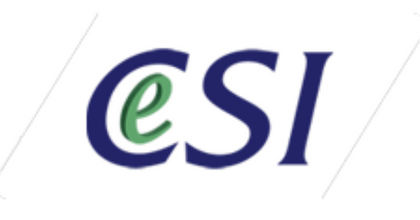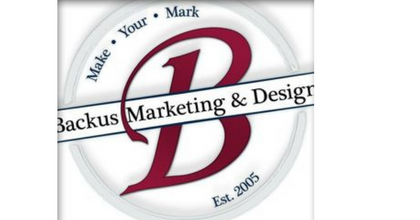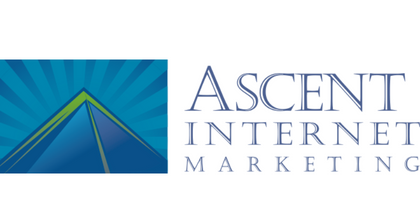
Top Food Software Development Companies
Welcome to our comprehensive guide to the top Food Software Development Companies! In today’s dynamic food industry landscape, technology plays a crucial role in enhancing efficiency, optimizing operations, and delivering exceptional customer experiences. Our curated list showcases the leading companies at the forefront of developing innovative software solutions tailored specifically for the food sector. From inventory management and supply chain optimization to online ordering platforms and customer relationship management systems, these companies offer a diverse range of products and services to meet your business needs. With detailed reviews and insights, we empower you to make informed decisions and choose the best partner for your food business’s success.
List of the Best Food Software Development Companies

-
Employees: 51 to 200
-
Min. Project amount: $25000
-
Country: U.S.A
-
Employees: 2 to 10
-
Min. Project amount: $25000
-
Country: U.S.A
-
Employees: 2 to 10
-
Min. Project amount: $25000
-
Country: U.S.A
-
Employees: 2 to 10
-
Min. Project amount: $25000
-
Country: U.S.A
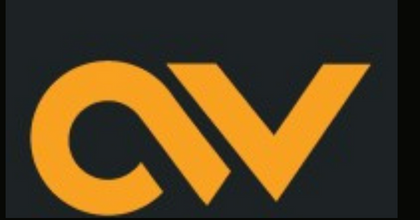
Addicott Web
-
Employees: 0 to 1
-
Min. Project amount: $25000
-
Country: U.S.A
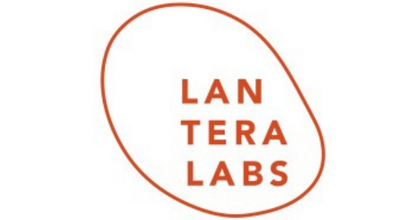
Lantera Labs
-
Employees: 2 to 10
-
Min. Project amount: $25000
-
Country: U.S.A
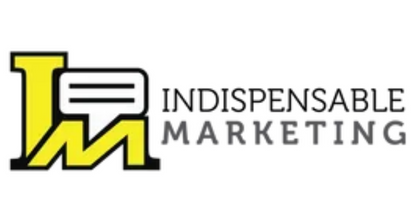
Indispensable Marketing
-
Employees: 2 to 10
-
Min. Project amount: $25000
-
Country: U.S.A
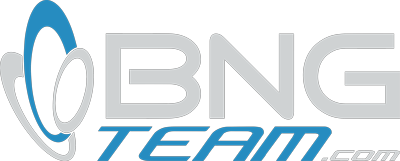
BNG Design
-
Employees: 51 to 200
-
Min. Project amount: $25000
-
Country: U.S.A

Ad Monkeys
-
Employees: 2 to 10
-
Min. Project amount: $25000
-
Country: U.S.A
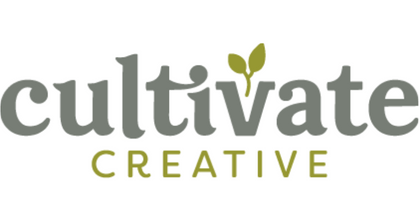
Cultivating Creative
-
Min. Project amount: $25000
-
Country: U.S.A
** Buyer's Guide **
- 1. What types of software solutions do Food Software Development Companies offer?
- 2. How can I determine which Food Software Development Company is the best fit for my business?
- 3. Can Food Software Development Companies customize their solutions to meet my unique business requirements?
- 4. How can I ensure that the software offered by Food Software Development Companies is user-friendly for my staff?
1.What types of software solutions do Food Software Development Companies offer?
Food Software Development Companies offer a wide range of solutions tailored to the food industry, including inventory management systems, point-of-sale (POS) software, online ordering platforms, kitchen management systems, food delivery logistics software, and customer relationship management (CRM) systems.
Food software development companies cater to various needs within the food industry. Let’s delve deeper into the specific software solutions they offer to illustrate their functionalities:
1. Streamlining Operations:
- Inventory Management Systems: Say goodbye to stockouts and wasted food. These systems track inventory levels, manage ordering processes, and optimize stock based on sales data and historical trends.
- Point-of-Sale (POS) Software: The backbone of many food businesses, POS systems handle transactions, manage customer orders, track sales data, and integrate with other solutions for seamless operations.
2. Enhancing Customer Experience:
- Online Ordering Platforms: In today’s digital world, convenience is king. Online ordering platforms allow customers to browse menus, place orders for pickup or delivery, and pay securely online, increasing accessibility and sales.
- Customer Relationship Management (CRM) Systems: Build stronger customer relationships! CRM systems help manage customer data, personalize marketing efforts, and track loyalty programs, fostering customer engagement and repeat business.
3. Optimizing Back-of-House Operations:
- Kitchen Management Systems: Improve kitchen efficiency and communication. These systems streamline order processing, display real-time order queues, track cook times, and minimize errors, leading to faster service and happier customers.
- Food Delivery Logistics Software: For restaurants offering delivery services, dedicated software optimizes delivery routes, manages dispatch schedules, and tracks driver activity, ensuring efficient and timely deliveries.
4. Additional Specialized Solutions:
- Restaurant Reservation Systems: Manage table bookings, waitlists, and seating arrangements to optimize restaurant capacity and provide a smoother dining experience.
- Nutritional Information Management Systems: Ensure transparency and cater to dietary needs. These systems manage menu item ingredients, calculate nutritional information, and allow for customization on online menus and digital displays.
By understanding the types of software solutions offered by food software development companies, you can identify tools that specifically address your business needs and challenges. From streamlining operations to enhancing customer experiences, these solutions can empower your food business to flourish in the competitive culinary landscape.
2.How can I determine which Food Software Development Company is the best fit for my business?
To determine the best fit, consider factors such as the specific needs of your food business, the features and functionalities offered by each company’s software solutions, pricing and scalability options, customer support and training services, as well as reviews and testimonials from other businesses in the food industry.
Choosing the right food software development company is crucial for optimizing your operations and enhancing customer experience. Here’s a breakdown of key factors to consider when making this decision:
1. Identifying Your Business Needs:
- Start with a Self-Assessment: Before diving into comparisons, take a step back and analyze your specific business needs. Are you a fine-dining restaurant requiring a sophisticated reservation system? Or a fast-food chain focusing on online ordering and delivery logistics? Clearly define your pain points and desired functionalities.
2. Evaluating Features and Functionalities:
- Matching Features to Needs: Once you understand your needs, research the software solutions offered by various food software development companies. Pay close attention to features and functionalities that directly address your identified pain points and growth aspirations.
- Focus on Integration: Consider the importance of integration with existing software you use (accounting systems, loyalty programs) to ensure seamless data flow and avoid manual workarounds.
3. Pricing and Scalability:
- Cost Considerations: Compare pricing structures offered by different companies. Look beyond the initial cost and consider ongoing subscription fees, additional module costs, and any data storage charges.
- Scalability for Growth: Choose a company that offers scalable solutions. Your business will evolve, so ensure the software can adapt to your future needs, allowing you to add features or increase processing power as required.
4. Customer Support and Training:
- Reliable Support is Key: Food service can be fast-paced. Reliable customer support is crucial to troubleshoot any technical issues and ensure smooth operations. Evaluate the support channels offered (phone, email, live chat) and response times.
- Training Makes a Difference: Solid training resources are essential for your team to adopt the new software effectively. Look for companies that offer comprehensive training materials, video tutorials, or even on-site training sessions.
5. Leverage Reviews and Testimonials:
- Learn from Others’ Experiences: Reading customer reviews and testimonials from businesses in your industry can provide valuable insights into the real-world experience with a specific food software development company. Look for feedback on ease of use, customer support effectiveness, and the overall impact on their operations.
By following these steps and conducting a thorough evaluation, you can identify the food software development company that best aligns with your business needs, budget, and growth goals. Remember, the ideal solution should streamline your operations, enhance customer experience, and empower your food business to thrive in the digital age.
3.Can Food Software Development Companies customize their solutions to meet my unique business requirements?
Yes, many Food Software Development Companies offer customizable solutions to meet the specific needs of different businesses in the food industry. Whether you operate a restaurant, catering service, food delivery business, or food manufacturing company, they can tailor their software to align with your unique workflows and processes.
Customization is a key advantage when working with food software development companies. Here’s how they can tailor solutions to your unique business requirements:
Building Solutions to Fit Your Plate:
Food businesses come in all shapes and sizes, with distinct needs and workflows. Here’s how food software development companies can customize their solutions for a perfect fit:
- Modular Design: Many companies offer software built with modular components. You can choose the core functionalities you need (e.g., inventory management, POS system) and add additional modules for online ordering, kitchen display systems, or loyalty programs, creating a customized solution that caters to your specific requirements.
- API Integrations: Do you use existing software for accounting, payroll, or marketing? Many food software development companies offer open APIs (application programming interfaces) that allow seamless integration with your existing systems. This ensures data flows smoothly between platforms, eliminating the need for manual data entry and streamlining operations.
- Workflow Configuration: Food software can be configured to adapt to your unique workflows. This might involve customizing order routing processes in a restaurant, managing delivery zones for a food delivery service, or setting up inventory tracking specific to your menu items and portion sizes.
- User Interface (UI) and User Experience (UX) Design: Customization can extend beyond functionality. Some companies allow tailoring the user interface (UI) to match your brand aesthetic, and the user experience (UX) to optimize it for your specific staff roles (e.g., simplified interface for waitstaff, more comprehensive features for managers).
Benefits of Customization:
- Streamlined Operations: A customized solution integrates seamlessly with your existing workflows, eliminating the need for complex workarounds and manual data entry, boosting efficiency and reducing errors.
- Enhanced Staff Productivity: Software tailored to your specific needs is easier for your team to learn and use, minimizing training time and maximizing staff productivity.
- Improved Customer Experience: Customization allows you to incorporate features that enhance the customer experience, such as online ordering with dietary preference selections or loyalty program integration for personalized rewards.
Finding the Perfect Fit:
- Communicate Your Needs Clearly: When approaching food software development companies, clearly communicate your unique needs and desired functionalities. The more specific you are, the better they can tailor a solution to match your requirements.
- Ask About Customization Options: Don’t hesitate to inquire about the extent of customization offered by different companies. Some may provide a high degree of flexibility, while others might have more limited customization capabilities.
By leveraging customization options offered by food software development companies, you can ensure your software solution perfectly complements your unique business model, optimizes operations, and empowers you to deliver an exceptional customer experience.
4.How can I ensure that the software offered by Food Software Development Companies is user-friendly for my staff?
Before making a decision, it’s essential to request demos or trials of the software solutions offered by Food Software Development Companies. This allows you and your staff to assess the user interface, ease of navigation, and overall user experience to ensure that it meets your requirements and is intuitive for your team to use.
User-friendly software is crucial for ensuring smooth operations and staff adoption. Here’s how you can go beyond demos and ensure the software is user-friendly for your team:
Ensuring Your Staff Can Navigate with Ease: Moving Beyond Demos
While demos offered by food software development companies are a great starting point, here are additional steps to guarantee the software is user-friendly for your staff:
Involve Your Team: Don’t make the decision in isolation. Include your staff, particularly those who will be using the software daily, in the evaluation process. Get their feedback on the demo or trial version. Are the menus and options intuitive? Can they find the functionalities they need easily?
Focus on Training Resources: Inquire about the training resources offered by the software development company. Comprehensive training materials, video tutorials, or even on-site training sessions can significantly improve user adoption and ensure your staff feels comfortable using the new software.
Consider Interface Customization: Some companies offer UI (user interface) customization options. Explore if you can tailor the interface to simplify it for specific staff roles. For example, a waitstaff interface might focus on order taking and table management, while a manager interface could include additional functionalities like inventory tracking or reporting.
Read User Reviews: Pay attention to user reviews and testimonials from other businesses in the food industry. Look for feedback regarding the software’s user-friendliness and ease of learning. Can staff with varying technical skillsets navigate the system effectively?
Usability Testing: If possible, conduct your own usability testing. Set up a trial environment and allow a small group of staff members from different roles to test the software. Observe their interactions, identify any difficulties they encounter, and use their feedback to refine your selection process.
By taking these proactive steps, you can ensure the chosen software solution is user-friendly for your staff, minimizing training time, maximizing adoption, and ultimately empowering them to work more efficiently.

